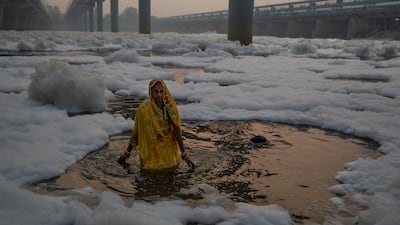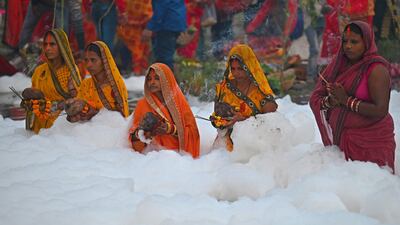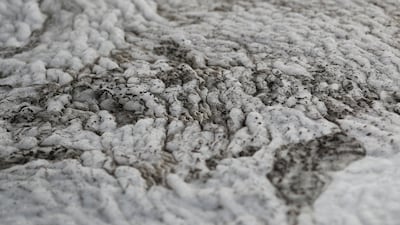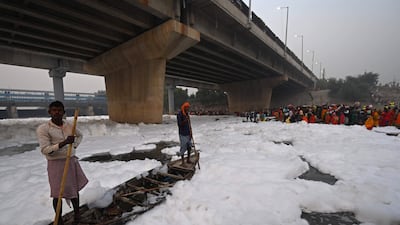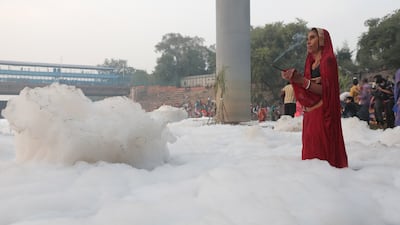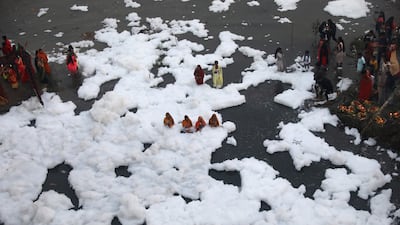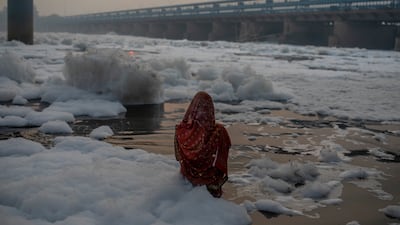Thousands of people gathered along a sacred river in the Indian capital on Wednesday, to celebrate a Hindu festival, only to find it filled with toxic white foam.
Devotees still performed dipping rituals and frolicked in the froth, despite Delhi authorities banning gatherings on the Yamuna – one of the most revered rivers for Hindus, but also the most polluted – over pandemic fears.
They were there to celebrate Chhath Puja, a three-day festival that comes after Diwali.
The festival is popular in eastern Bihar state and involves women fasting and offering prayers to a sun deity while standing knee-deep in the river on the last day.
Many devotees found themselves surrounded by mounds of white foam blamed on the city’s sewage waste and industrial effluent.
Videos and photos posted on social media showed women and children wading through dark-coloured river water and merrily tossing the foam around with their hands.
Experts blame hundreds of small factories and the city’s largely untreated sewage for the froth that covers the section of the river in the region after the monsoon season.
The 1,370-kilometre river is a tributary of the Ganges. It originates from the Himalayan Uttarakhand state and flows through Delhi, Haryana and Uttar Pradesh.
Much of the pollution is caused by wastewater discharged by garment-dyeing industries, toxic effluent from factories and untreated sewage from households in Delhi, Haryana and Uttar Pradesh.
Delhi dumps about 720 million gallons of wastewater into the river while Uttar Pradesh about 155 million gallons of untreated sewage every day.
The appalling scenes at the festival prompted safety concerns from health experts, environmentalists and triggered an embarrassingly last-ditch attempt clean-up drive by the government.










More than 15 boats equipped with large sheets of cloth were seen pushing the foam away from the banks while workers sprinkled freshwater from using pipes to dissolve it.
Dozens of bamboo barricades were also erected to keep the foam away from the banks as scores of policemen made unsuccessful attempts to drive away the believers.
The upsetting scenes also triggered a political slugfest between the Arvind Kejriwal-led Delhi government and members of Prime Minister Narendra Modi’s Bharatiya Janata Party.
Successive governments have announced plans to clean and revive the river in their poll promises, including Mr Kejriwal’s administration that in 2020 pledged to reduce Yamuna’s pollution levels by 90 per cent by 2023.
